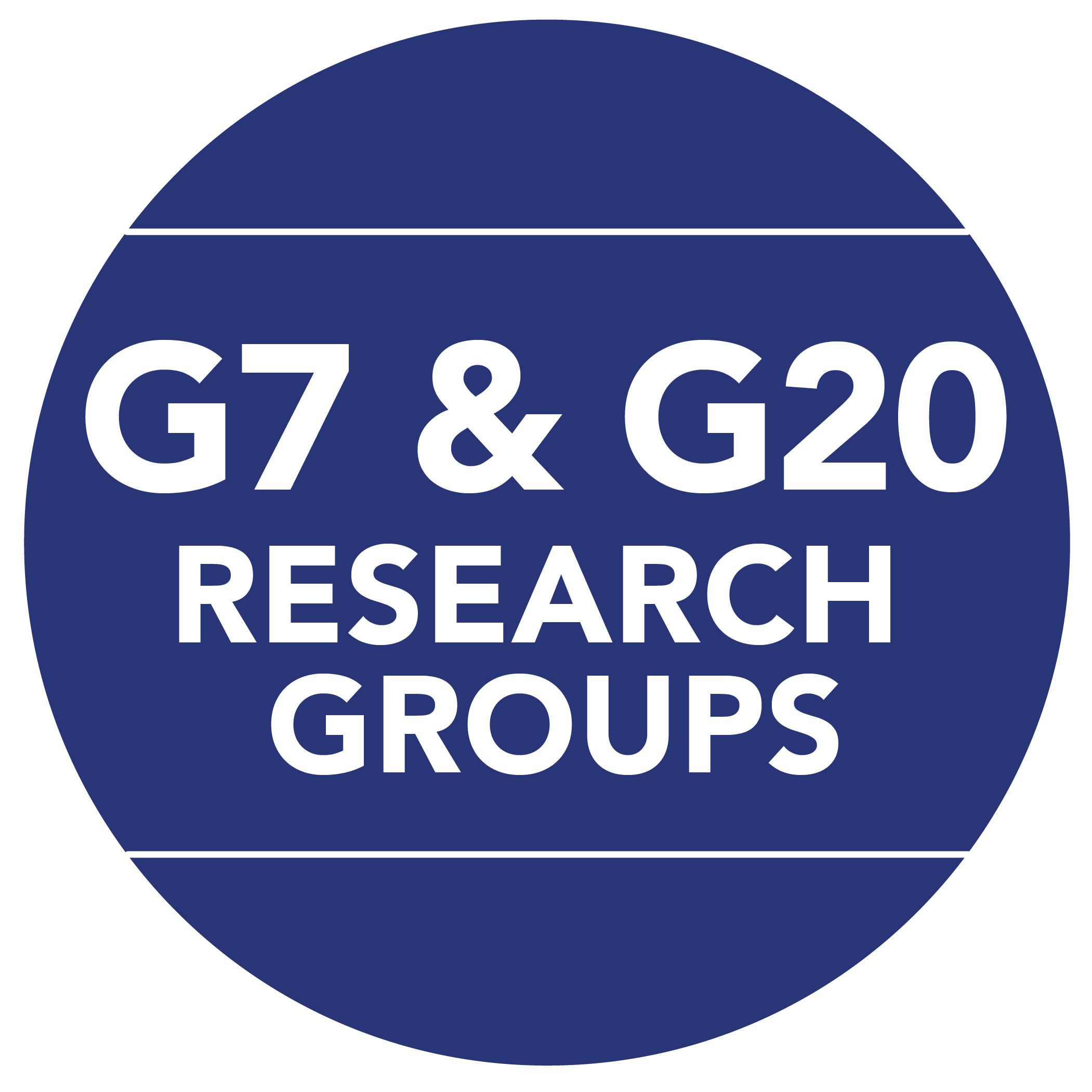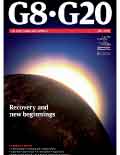

 |
 |
|

Social business and the G8/G20
By Muhammad Yunus, founder, Grameen Bank; Nobel Peace Laureate, 2006
To download a low-resolution pdf, click here or go to the Newsdesk site.
Eradicating such world crises as poverty and hunger requires more than just good economics. Social business – business without personal gain – has a key role to play
When the G8 was formed as a coalitionWin which each of the eight countries is among the most highly ranked exporters, there was great hope that these chosen eight would collaborate for the greater good of the globe as a whole. When this clearly did not work out well, the G20 was designed to represent the 20 countries that account for 85 per cent of the world’s gross national product (GNP) and 80 per cent of its trade.
The result is a list of countries that have the power to alleviate social ills and poverty and, eventually, eradicate both. The G8 has the financial means, academic institutions and technology to share with countries that have been left behind during the great digital boom. The G20 has the scope to disseminate the human resources and markets necessary for poverty eradication. The G8 and G20 can join forces to eliminate the most denied human right of all: the right to not be poor.
Media coverage of the financial crisis gives the impression that, once this crisis is fixed, all the troubles will be over. But the financial crisis is only one of several crises that are threatening humankind. The world is also suffering a global food crisis, an energy crisis, an environmental crisis, a healthcare crisis and the continuing social and economic crisis of poverty. These crises are as important as the financial crisis, although they have not received as much attention.
Furthermore, media coverage may give the impression that these are disconnected crises that are taking place simultaneously, just by accident. That’s not true at all. In fact, these crises grow from the same root – a fundamental flaw in our theoretical construct of capitalism.
The biggest flaw in the existing theory of capitalism lies in its misrepresentation of human nature. In the present interpretation, human beings engaged in business are portrayed as one-dimensional beings whose only mission is to maximise profit. This is a much distorted picture of a human being. Human beings are not money-making robots. The essential fact about human beings is that they are multidimensional beings. Their happiness comes from many sources, not just from making money.
Yet the theoretical framework of economics has built the whole theory of business on the assumption that human beings do nothing in their economic lives other than pursue their selfish interests. The theory concludes that the optimal result for society will occur when each individual’s search for selfish benefit is given free rein. This interpretation of human beings denies any role to other aspects of life – political, social, emotional, spiritual, environmental and others.
No doubt, human beings are selfish beings. But they are selfless beings too. Yet this selfless dimension of human beings has no role in economics. This distorted view of human nature is the fatal flaw that makes such economic thinking incomplete and inaccurate. Over time, it has helped to create the multiple crises facing the world today.
Once this flaw is recognised in the theoretical structure, the solution is obvious. The one-dimensional person in economic theory can be easily replaced with a multidimensional person – a person who has both selfish and selfless interests at the same time.
Immediately, the picture of the business world thus changes. Now there is the need for two kinds of businesses, one for personal gain (profit maximisation), another dedicated to helping others. In one kind of business, the objective is to make the most economic gains for the owners, even if this results in nothing left for others. In the other kind of business, everything is for the benefit of others and nothing is for the owners – except the pleasure of serving humanity.
Let us call this second kind of business, built on the selfless part of human nature, social business. A social business is one where an investor aims to help others without taking any financial gain. At the same time, a social business generates enough income to cover its own costs. Any surplus is invested in the expansion of the business or in increased benefits to society. A social business is a non-loss, non-dividend company dedicated entirely to achieving a social goal. Regarding the source of funds, one source can easily be philanthropic money creating social businesses. This makes enormous sense. One problem of charity programmes is that they remain perpetually dependent on donations. They cannot stand on their own two feet. Charity money goes out to do good things, but that money never comes back. It is a one-way route. But if a charity can be converted into a social business that supports itself, it becomes a powerful undertaking. Now the money invested is recycled endlessly. A charity dollar has one life, but a social business Bangladeshi taka has an endless life. That is the power of social business.
In recent years, Grameen has launched different social business joint ventures that seek to fight malnutrition, including Grameen Danone, Grameen Veolia Water Ltd. and BASF Grameen Ltd. Additionally, in North America, it is conducting research on social business in healthcare together with Google, GE Healthcare, Pfizer and the Mayo Clinic.
In response to the G8’s commitment to pledge $20 billion in aid for hunger relief, Grameen has developed a proposal to establish the Global Social Business Fund to End Hunger by putting 10 per cent of this money into the proposed fund. This initiative represents an unprecedented opportunity to introduce a new, more strategic solution to feeding the poor. The technological, academic and management contributions of G8 and G20 countries are crucial to the eradication of poverty. Instead of giving a dollar one life by giving it out as a charity, it can be given many lives through investing in social business. Now is the time to put poverty in museums. The technology is right. The desire for change is high. Social business must spread across the globe. What good is a wonderful seed if it is not scattered to the four winds?
|
This Information System is provided by the University of Toronto Library |
All contents copyright © 2024. University of Toronto unless otherwise stated. All rights reserved.